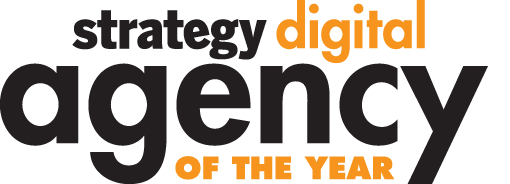Bronze — Taxi
Offices: Montreal, Toronto, Vancouver, Calgary, New York, Amsterdam
Staff: 307 (in Canada)
New hires: In the past year, the company added 60 employees, including senior writer Tom Greco and senior art director Colin Brown
New business: Taxi Toronto: Hockey Hall of Fame, Black's, KPMG
Taxi Montreal: Canadian Labour Congress, V Tele
Taxi Vancouver: BC Ferries, First West Credit Union, Veris Gold, Bantrel
Taxi Calgary: Alberta Motor Association, Rocky Mountain Dealership
Taxi's teenage years certainly weren't awkward. As the agency turns the big 2-0 in 2012, it looks back on an award-filled decade: in 11 of the past 13 years, Taxi finished in the top three of Agency of the Year, for a haul of five Golds, two Silvers and four Bronzes. Last year, the agency debuted in the inaugural DAOY awards with an honourable mention. Now it celebrates 20 years by nabbing Bronze in both competitions.
It shouldn't come as a surprise that the agency is taking digital agency kudos. A core belief in integrating different disciplines in the advertising world guided Taxi's founders two decades ago. And the roots of this year's digital Bronze can be traced back to 2001, when current chief creative officer Steve Mykolyn joined the agency and began building out its digital offerings. "We've always had an integrated approach," says Mykolyn. "The agency started by combining advertising and design disciplines under the same roof, which in 1992 was radical."
This year was another good one for Taxi on the awards circuit, including a Bronze Film Lion at Cannes for its Hockey Hall of Fame campaign. There were downers too: Taxi 2 lost its 10-year-old BMW Mini account, work which over the years scooped up international awards and attention. When asked about losing Mini, Mykolyn deadpans that it's an opportunity for another car company to give the agency its business.
In terms of highs, Mykolyn notes personal satisfaction over work the company did on the recently launched Canadian Tire rebrand for its 90th anniversary. That campaign sees the retailer doubling down on its Canadian roots, playing up a sense of nostalgia in television spots ahead of competition from U.S. retailer Target.
Over the past year, Taxi's practice of involving its digital experts in the creative process drove both engagement and effectiveness. "Everybody is working on the client solution at once, rather than in a sequential format," says Rob Guenette, CEO, Taxi. "It's faster, it's richer, and it ends up being a much more holistic approach."
An example is Taxi's work for Boston Pizza, which included a redesign of the restaurant chain's website. The work pocketed a Gold at this year's Effie Awards in New York and Silver at the 2012 CASSIES. Because Taxi integrated traditional web design into the wider campaign, the effect was amplified.
"It became an extension of the web build on television and in a direct mail piece where we created the book, 'The Joy of Finger Cooking,'" Mykolyn says. "We couldn't have done that in isolation. If we were agency of record just for advertising and didn't do the website, it probably wouldn't have happened seamlessly."
While Taxi has always operated based on a philosophy of small teams of experts driving every piece of business (the same number that can fit into a cab), as the advertising landscape shifts, so do the people in the taxis.
Taxi's group director of creative technologies, Ben Feist, says being able to pull off the "complete offer" on campaigns entails tech experts that can play well with others. "We hire people more consultative in nature. They like to walk around and talk about what they're doing," he says. "It makes them more compatible with the typical writer or art director or creative approach to advertising."
Guenette says the traditional line between disciplines has blurred at Taxi, as people trained in sought-after technical skills work more closely with copywriters and art directors than ever before. "I hate to even call them technical people," he says. "They're just a different kind of a creative."
Now that brands want to combine utility with an interesting story that can be told digitally, agencies are under pressure to produce ideas that transcend traditional mediums. For instance, Feist says the agency is exploring live online events, since they tick many of the boxes successful campaigns require. Most importantly, they allow brands to connect their web audiences or social media followings to a real-world retail experience.
Taxi experimented on this front over the past year, running two live events for Telus, including a Facebook event called the Big Picture that ran over two days in June. In a form of virtual Pictionary, contestants logged onto the social media service to watch a trio of artists sketch pictures on the newly introduced Samsung Galaxy Note. Feist says the idea sprung from wanting to engage Telus customers in a meaningful yet short-term way that didn't sound like an online corporate sweepstakes.
Mykolyn sees the work of advertising agencies becoming more difficult as the tools brands use to communicate multiply. He says Taxi will seek out employees with varying skill sets, whether it's technical, design or others.
"No matter how many channels or silos there are, what hasn't changed is the fundamental need to solve a problem," he says. "That's where our philosophy of four people in a cab still resonates."

